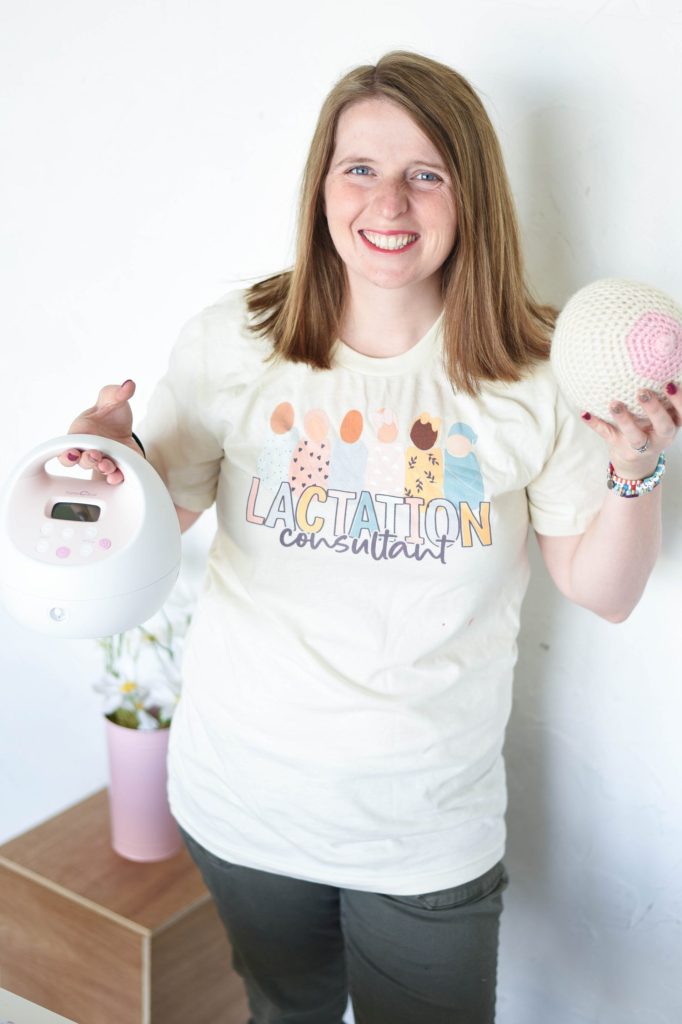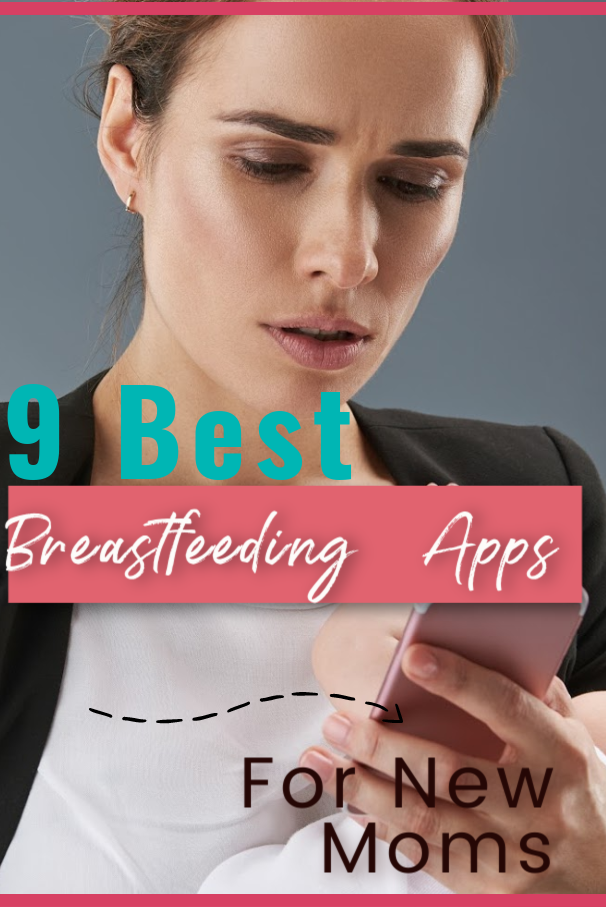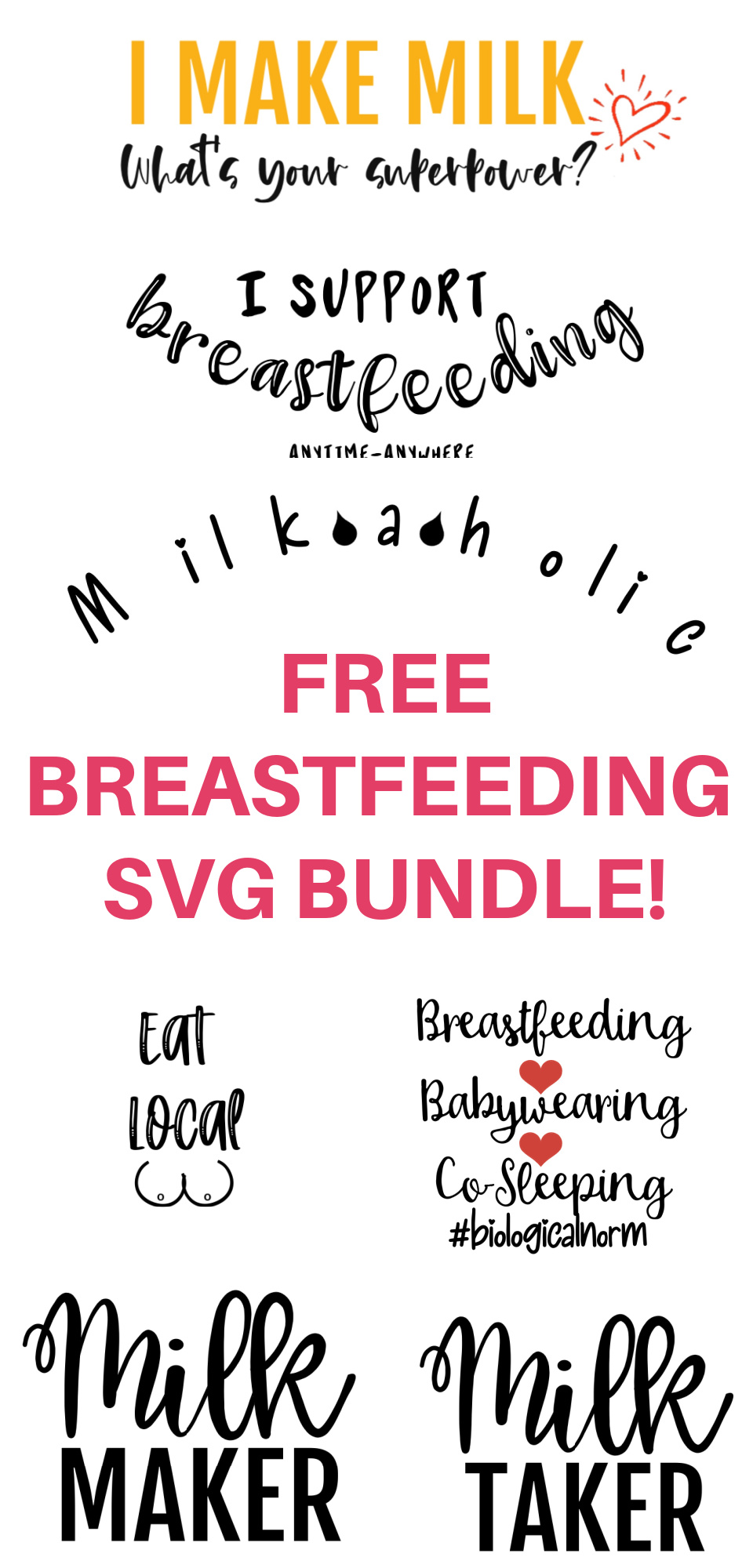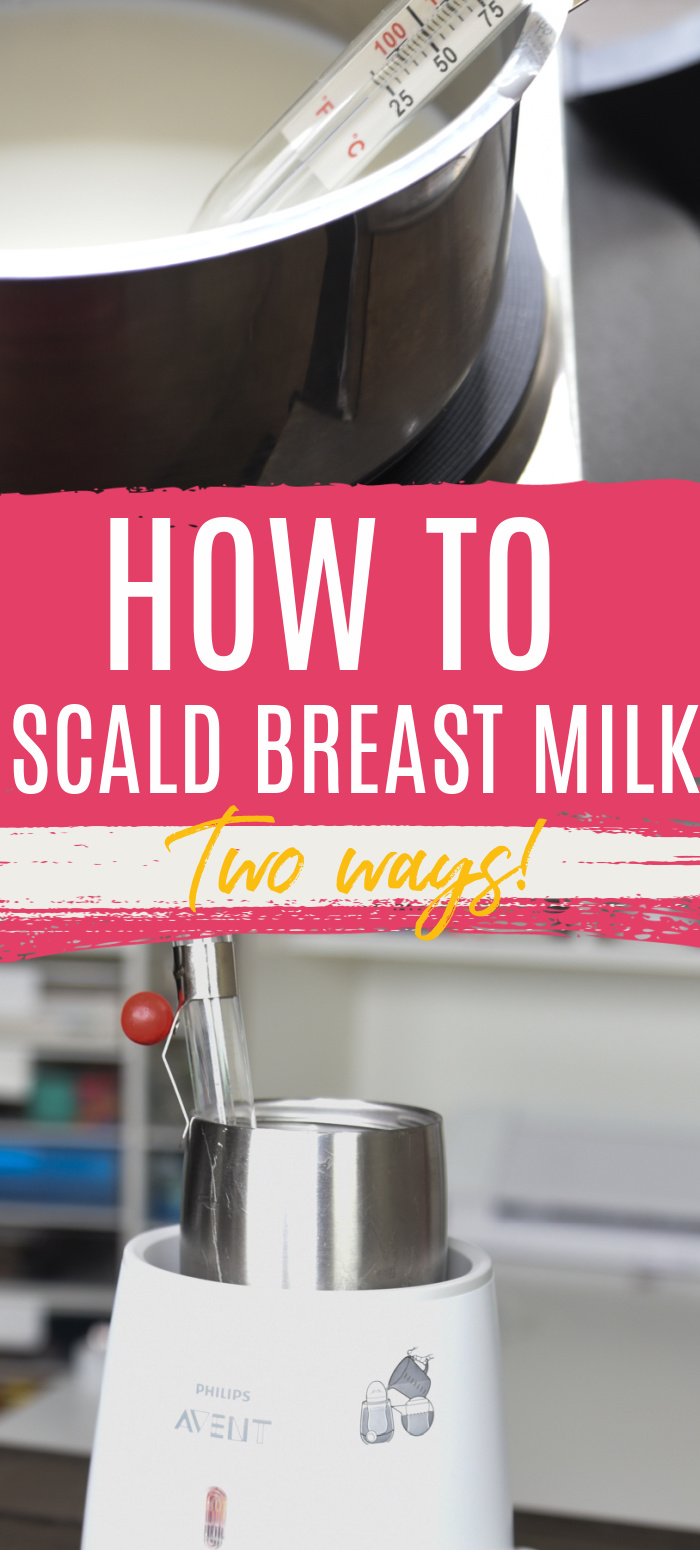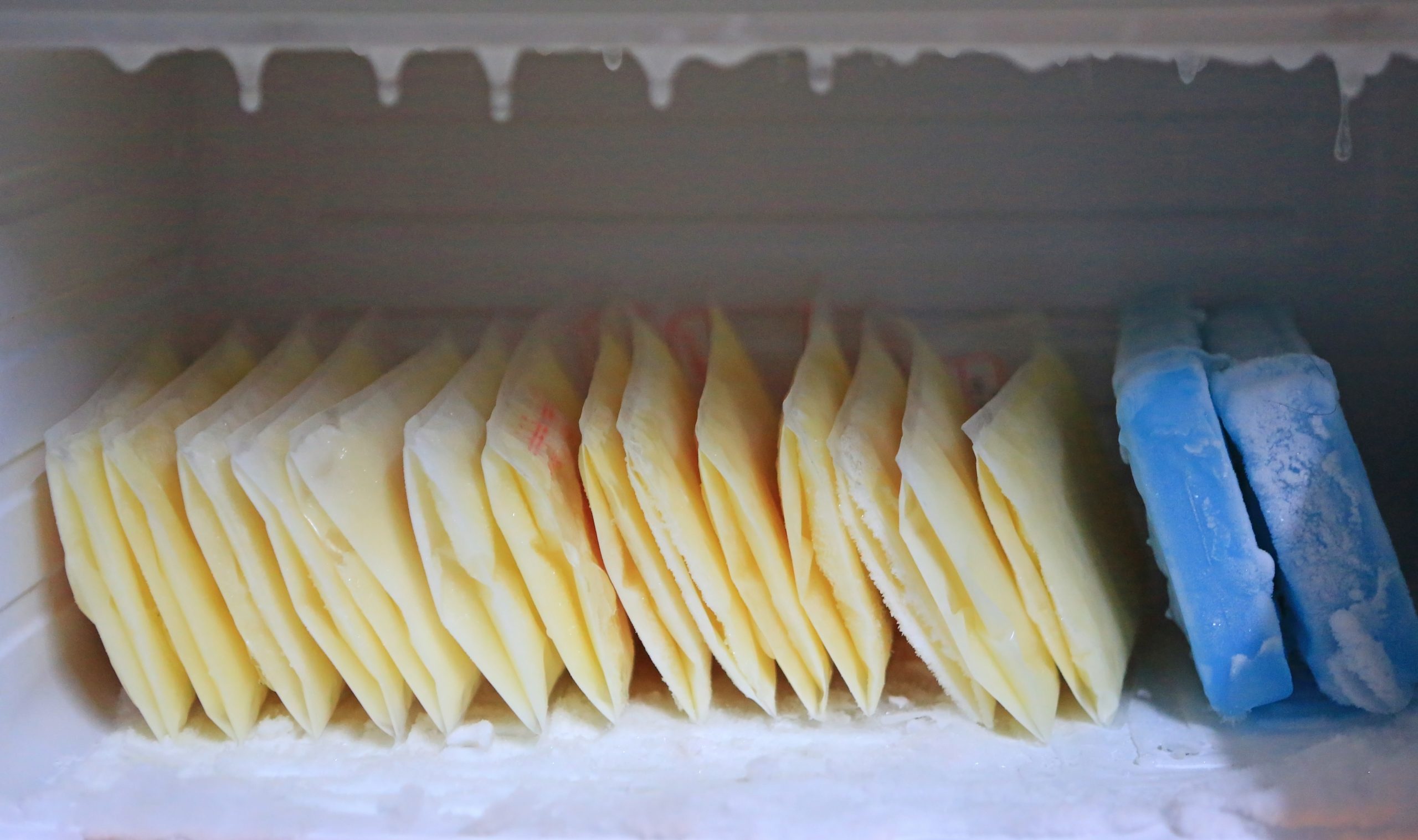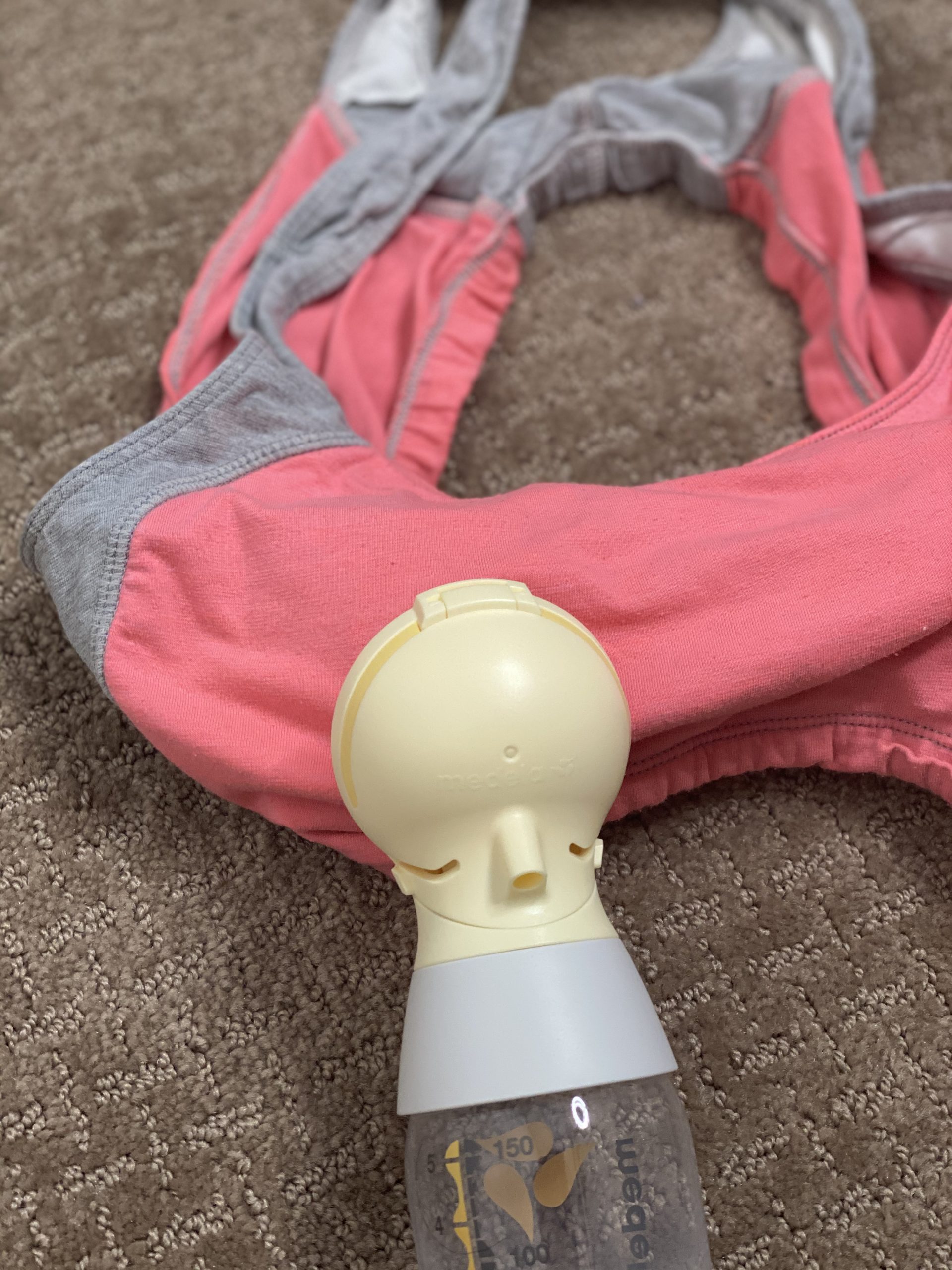Donor Breastmilk 101: Everything You Need to Know
Donor Breastmilk Pros and Cons, how to become a breast milk donor, where to get donor milk, and more.
When Oliver was born, his blood sugar was quite low due to being IUGR.
While he was, fortunately, able to breastfeed well enough to get his blood sugar up, our medical team said there was donor milk or formula available in case it was necessary for his blood sugar.
I was pleasantly surprised to hear that they were fully stocked with donor milk – something I didn’t even know existed when Jack was born.
Although I don’t love a lot of things about the Baby Friendly Hospital Initiative (many of my feelings are represented in this post), I do appreciate that they are bringing more awareness to the option of breast milk, which, according to the WHO, is an acceptable substitute for a mother’s own milk.
My Donor Milk Story
Many of you know that the first few months of Oliver’s life were a bit difficult. He struggled to gain weight a few different times, and it was incredibly stressful and emotional.
Our one saving grace during that time was a wonderful lactation consultant who helped us figure out the best way to feed Oliver – and get him to grow weight!
At one point when supplementing was on the table, she suggested I look into donor milk.
While I’d heard about it briefly at the hospital, I wasn’t aware that it was available outside the hospital doors.
Our pediatrician scoffed at the idea, however, I’m grateful that we looked into it.
At first, we got milk from a certified donor milk bank – however, at $4 an ounce, it wasn’t a sustainable option. So I turned to our local Human Milk 4 Human Babies, and within hours of requesting some donor milk, a kind woman donated over 200 ounces for us to use.
Even though we didn’t have to supplement forever, that 200 ounces helped us so much. While there is absolutely nothing wrong with moms using formula, I do think it’s important to know their options regards supplements.
I run a support group for Breastfeeding moms on Facebook, and there are so many moms who don’t realize donor milk is an option – both to receive and donate. So, I thought I’d share a little bit about donor milk – I hope that it will be helpful!
Please note that no information in this post should be taken as medical advice. Always consult with your medical team before making changes to your child’s diet.
Why Use Donor Breast Milk?
A mother’s own milk will always be the best option for her baby. However, I know as well as anyone that this isn’t always an option.
While formula is fine to use, being able to use the donor milk of another mother is the next best thing in many circumstances. It provides benefits that only breast milk can.
When a low birth weight child is in question, donor milk can be particularly advantageous. According to the WHO:
- Available evidence shows that compared with formula, donor human milk is associated with lower incidence of the severe gut disorder, necrotising enterocolitis, and other infections during the initial hospital stay after birth (source).
Why Donate Milk?
Some mothers find them in different circumstances where they have milk that they cannot use for their own child.
They may have an oversupply, and their freezer is overflowing with milk they’ll never be able to use.
They may have a child who, for whatever reason, isn’t able to drink breast milk (or the amount of breast milk they produce).
They may just want to do a small thing to help another mother.
Even in some circumstances, there are mothers who have had a child pass away, but they’ve continued to pump milk to donate to others (this story shares a story of a mother who did just this. Amazing).
There are probably dozens of reasons for a mother to donate milk – and I think probably 99% of them are pretty selfless.
It may not seem like a huge thing to donate your extra milk, but it can change the lives of babies.
Options for Donating or Receiving Milk
Donor milk at face value isn’t necessarily a controversial thing.
However, the different options for donating and receiving milk can be.
For the most part, donating and receiving milk through a milk bank such as one run by HMBANA, is generally acceptable and encouraged.
They have very strict procedures for accepting milk from donors, and the milk is put through a pasteurization process to help protect immune-compromised babies, who are often the recipients of milk bank donor milk.
Many people believe that this process kills all the good parts of the breast milk, which is not true. Most of the nutrients and immunity boosting properties remain intact through the process.
I know that some people are bothered by the fact that milk banks charge about $4 per ounce – however, it is a misconception that they are milk money off of breast milk.
According to Laraine Borman, IBCLC, who works with the Mothers’ Milk Bank in Denver (the one that I actually used), as quoted on Kelly Mom:
“Human Milk Banking Association of North America (HMBANA) banks do not charge for the milk itself, only for the processing of the milk and related overhead. Processing includes:
- the multi step screening of the donor, including blood tests
- donor tracking
- pasteurization
- testing and analysis of the milk
Related operational costs include:
- rental of office space
- purchase of bottles and caps
- freezers
- employee payroll (volunteers are utilized whenever possible)
“HMBANA Milk Banks are non-profit organizations making enough to keep doors open and continue to do the important work of helping to save babies’ lives. While the majority of the pasteurized human milk from the Mothers’ Milk Bank in Denver is sold to hospitals, milk depots also sell this life-saving nutrition to individuals.
“A baby with a health condition warranting the need for milk is never denied milk because of the inability to pay. Recipients always have the opportunity to apply for financial aid.”
I actually took a tour of the Mothers’ Milk Bank awhile back, and I was very touched by how much the people who work there love their jobs. The fact is, these milk banks need donors – the milk that they process and provide help to save the lives of infants across the United States and Canada. Babies who are in the NICU or immune-compromised can really only receive milk this way.
With that said, I believe mother to mother sharing is a wonderful thing as well. There is always a bit of “controversy” surrounding this, since it’s not a monitored thing…however, in my experience, the mothers who participate in mother to mother sharing are just wanting to help
There are certain precautions you can take to make sure it’s a safe process for all involved – I’ll talk about that more in a minute.
The only thing that I find sketchy is buying and selling breast milk. There are stories of mothers watering down milk so they can sell more of it…and this is extremely dangerous. In general, if there’s any financial gain to come from donating breast milk, I would stay away.
So, which one should you choose? Milk bank or direct sharing? Well, here are a few things to consider:
- Are you very healthy and not taking any medication?
- Can you donate at least 150 ounces over the course of the time you are breastfeeding?
- Are you producing enough in excess to make sure your baby is still being fed?
- Are you willing to undergo blood tests?
- Do you consume very little caffeine?
To be a donor for a milk bank, these are some of the requirements. You can see them all here – but they are rather stringent. If you can adhere to all of them…you may want to consider donating at least some to a milk bank.
However, donating directly to moms is a great option, too. I do think you should still be healthy, avoiding any medications that aren’t seen as compatible with breastfeeding (check your medications on this database), etc. But if you don’t qualify to be a milk bank donor, this is still a great option that many moms will appreciate. Even if you can donate to the milk bank, I’d still consider donating to local moms.
There is no wrong choice!

Becoming a Breast Milk Donor
So. How do you become a breast milk donor?
If you are wanting to donate to a milk bank, you can find information on your local milk bank here. They have specific procedures and blood tests you have to go thorugh in order to donate milk.
If you want to donate milk directly to moms, there are a few different sources:
While there may be others, these two organizations are the most active and recognizable ones. They have Facebook pages for different communities where you can put in a donation request for receiving or donating. I’ll list all the pages at the end of this post.
Where can you get donor milk?
You can get donor milk from:
- Milk Banks certified by HMBANA – you can find a location near you here.
- Human Milk 4 Human Babies
- Eats on Feets
Again, scroll to the end of this post to find a mom to mom milk sharing page for your area.
[thrive_leads id=’30982′]
Advice and Questions about Donor Breastmilk
If you are getting milk from a milk bank, there really aren’t any precautions you need to take.
However, with mom to mom direct sharing, I do think it’s good to be a little cautious. I think most moms are honest and just happy to help another mom…but you just never know.
Have a donor questionnaire
You definitely have every night to know the medical and social history of a mom. Eats on Feets has a list of great questions to ask anyone that you will be potentially getting milk from.
Be wary of people asking for money
It is acceptable to compensate a mother for the cost of bags, though many moms won’t take any compensation at all. As I mentioned at all, if someone is trying to sell you their breast milk, I would proceed with caution.
Similar age
Try and get milk from a mother who pumped their milk when baby was a similar age. While a baby can eat milk from just about any aged baby, it’s typically best to feed your baby milk from a mother who is feeding a baby at the same age.
Babies between the ages of one month and six months receive 24-30 ounces in a day, so regardless of the age of the baby, try and keep it to that amount. The breastmilk does change in composition as baby gets older, which is another reason to try and keep donated milk around the same age as your baby.
Always meet in a public place
Again, I think most people have the best of intentions…but you really never know. Always make sure you meet in a public place to donate or receive milk. If you do meet in a house, bring someone with you.
Store Breast Milk Correctly
It is important that you know how to store breast milk correctly. This is a great resource on breastmilk storage and handling.
Test the milk
Before you take a huge amount of milk from a mother, make sure you test it with your baby. Some milk will have high lipase – which some babies can tolerate and others cannot. Sometimes, the milk will just taste different than your milk and baby won’t want it.
It would be unfortunate to take someone’s milk, only to have your baby reject it!
Does insurance cover it?
It typically depends. If you are receiving it in the hospital, it often will be covered by insurance – but it’s something to check before your child is born.
Outside of the hospital, it would definitely depend on the circumstances. I know that our local Milk bank doesn’t bill insurance directly, but if your insurance will cover it, they are willing to work with them.
Keep Good Records
Whether you are donating or a recipient, it’s important to keep good records regarding the milk. Make sure you always write down when it was pumped, know when it was put in the freezer, and know how long it is good for. Making notes about medications taken, alcohol consumed, and even if you or baby was sick can be important.
Is it Weird?
I think this is the biggest concern moms have – is it weird to feed your child another mother’s breastmilk? I know that I wrestled with that same concern.
However, when it comes down to it, do you think it’s weird to drink the milk of a cow? Or from a goat? It’s really not that strange. People used to use wet nurses a lot, and it was considered normal! So no, donor milk is not weird. It’s a wonderful way to feed your child if necessary.
If you haven’t fed your child by bottle yet, make sure you read this post about bottle feeding your breastfed baby for the best tips!
How do you know you can trust someone?
Well, you can’t always trust them! I think that it’s important to listen to your mommy gut. If something seems off, just go with it.
I do believe that the majority of moms who are donating milk are doing so because they truly want to help someone else. I know moms that befriend their donor on Facebook or search them out a little bit before accepting milk…which I think is a good idea!
Be Picky
Don’t feel like you have to accept milk from just anyone. When I was first looking for a donor, my lactation consultant put me in contact with someone who seemed great (and I’m sure she was!). However, she was on a medication that, while it was deemed “probably safe” with breastfeeding…I just didn’t feel comfortable with it, especially since Oliver was having trouble.
It may limit the number of donors that are available to you, but if you need your donor to be on a certain diet, abstain from certain medications or alcohol, or any number of issues, that’s just fine. Just be upfront about what you are looking for.
Mom to Mom Milk Sharing Pages (By State)
(HM4FB – Human Milk for Human Babies. EoF – Eats on Feets)
California – HM4HB | EoF Northern Cali, EoF Central, EoF Southern
Delaware – HM4HB
Maryland and Washington D.C. area – HM4HB | EoF (Maryland) EoF Washington D.C.
Mississippi – HM4HB
Wyoming – HM4HB
More Resources on Donor Milk
I believe it’s important for moms to research the pros and cons to using donor milk – especially when it comes to mom to mom sharing. Kelly Mom, an excellent resource for breastfeeding-related topics, has put together this great webpage with all the information you could need to make an informed choice.
For even more information on breastfeeding – from newborn and beyond – be sure to check out our breastfeeding 101 page. It’s chock-full of all things breastfeeding!
[thrive_lead_lock id=’30534′]Hidden Content[/thrive_lead_lock]




